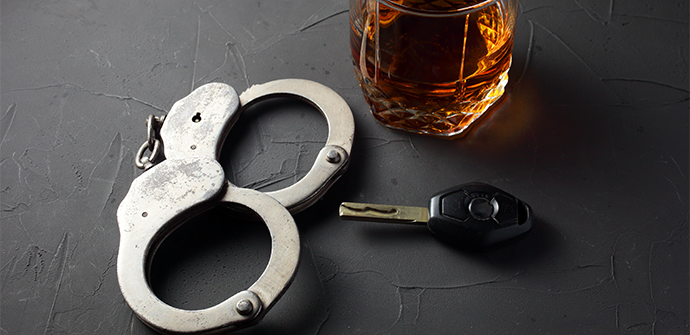
A common tool used by New York State law enforcement authorities is a DWI or sobriety checkpoint. Located temporarily at random places within the state, many people often don’t receive notice of a sobriety checkpoint until they come across it. If you’ve been stopped at a sobriety checkpoint in the past, you may be wondering what rights you have when stopped at one. Keep reading to find out more about what sobriety checkpoints are and what rights you have at one. And if you’ve been arrested at a sobriety checkpoint, please call a Rockland County DWI defense attorney. We’ve dealt with many similar cases and will be able to determine if the officer acted lawfully during your checkpoint.
Officers use sobriety checkpoints to reduce drunk driving accidents by periodically checking drivers. If a driver demonstrates impaired driving and signs of being intoxicated, whether by alcohol or drugs, the police are allowed under law to arrest that driver on a DWI or “driving while intoxicated” charge.
Sobriety checkpoints are not illegal under the Constitution, though there are several regulations that legal sobriety checkpoints must comply with. Under the Fourth Amendment, citizens have a right to be free of “unreasonable searches and seizures.” You should contact a DWI defense attorney right away if you think your rights have been violated at a checkpoint.
Although you may not receive it, to be valid, DWI checkpoints must give public notice of the checkpoint and the reason for it ahead of time. Furthermore, the actual site of the checkpoint must have proper and adequate signage so that drivers know what they are driving towards. A sobriety checkpoint should not take excessively long and should not be impermissibly intrusive to drivers. The police are not allowed to discriminate at sobriety checkpoints. A random formula is necessary to choose the cars that will be stopped. Finally, a police supervisor needs to be monitoring the DWI checkpoint and the procedures during the stop.
Police officers are not permitted to search either you or your car without your consent. When an officer does not comply, they may be guilty of violating your rights with an unwarranted search. Unreasonable searches and seizures are forbidden by the Fourth Amendment to the United States Constitution.
To comply with non-discrimination laws, police officers are required to use a random pattern when they select cars to stop at a checkpoint.
On the other hand, if you turn around to evade a sobriety checkpoint, that may be probable cause to pull you over. This is doubly the case when, to get away, someone drives dangerously or improperly, such as by making an illegal U-turn. As such, you may end up detained by trying to void the DWI checkpoint.
During the checkpoint, you must show the officer your license and registration upon request. The officer will ask you questions as they figure out whether you are intoxicated by drugs or alcohol, and may even request that submit to a field sobriety test or chemical breath test.
At that moment, you have the right to refuse to answer questions as well as to refuse the field sobriety test and chemical test. However, there are consequences for refusing specifically the chemical breath test, as implied consent in New York understands that you accept breath tests as a condition of driving on New York roads. You may have your license suspended. You may also be arrested and given a blood test once you’re in jail.
© 2024 The Law Office of Kevin T. Conway. All rights reserved.